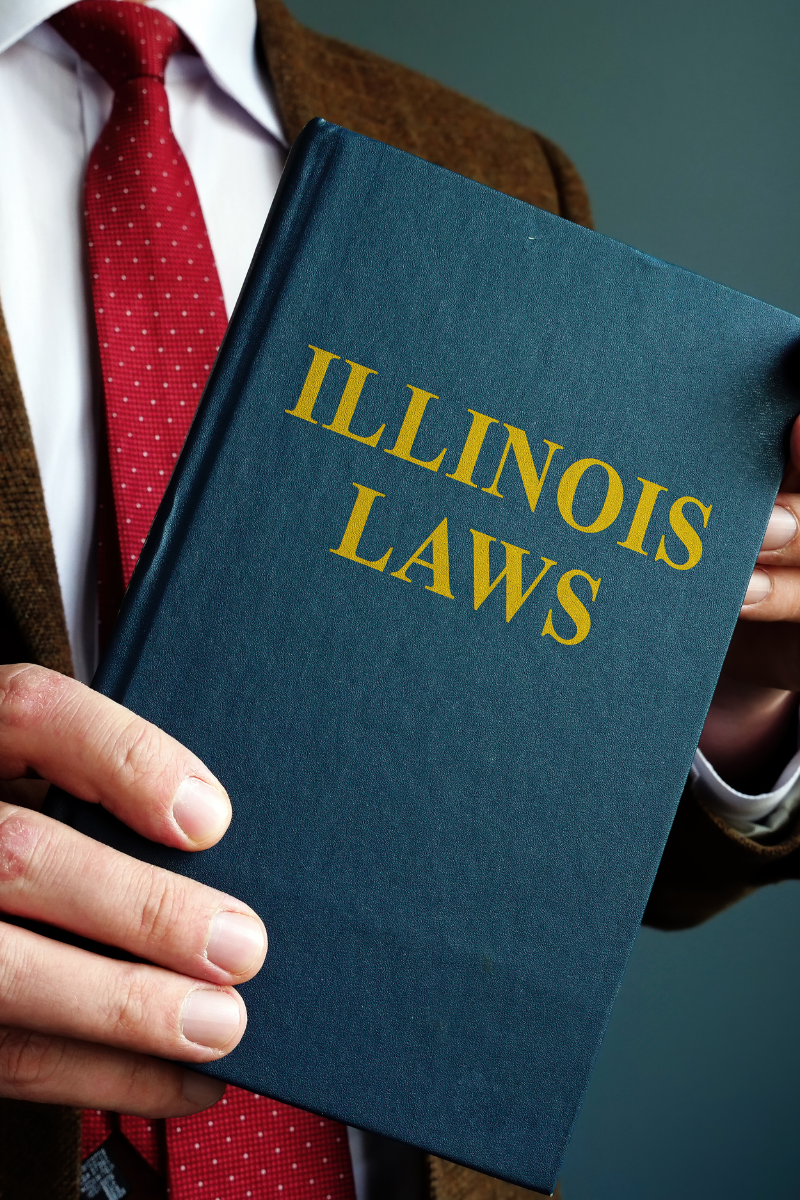Emotional vs. Legal Impact: What Really Matters in an Infidelity-Related Divorce?
Infidelity-related divorce is one of the most painful betrayals in a marriage, often leading to heartbreak, anger, and the collapse of trust. According to the American Psychological Association (APA), adultery plays a role in 20–40% of divorces—but does it actually impact the legal outcome of a divorce?
In Illinois, as in many other states, the emotional devastation caused by an affair and its legal implications are two separate matters. While cheating can end a marriage, it may not significantly influence decisions regarding property division, spousal support, or parental responsibilities.
This blog breaks down the emotional and legal aspects of infidelity-related divorces, helping you understand what truly matters when dissolving a marriage due to adultery. Here’s what you need to know.
The Emotional Toll of Infidelity-Related Divorce 
Discovering a partner’s infidelity can be an emotionally overwhelming experience, often triggering a whirlwind of feelings that can make the divorce process even more challenging. While every person copes differently, certain emotional responses are common. Understanding these emotions can help you process your feelings and make informed decisions as you move forward.
Some of the most common emotional effects of adultery include:
- Betrayal and Loss of Trust: Trust is the foundation of any strong marriage, and an affair can completely erode that foundation.
- Anger and Resentment: Many spouses feel overwhelming anger and betrayal, leading to intense emotional conflicts.
- Guilt and Shame: The spouse who engaged in the affair may experience guilt, while the other may feel embarrassment or blame themselves.
- Depression and Emotional Distress: The end of a marriage, especially due to adultery, can lead to anxiety, depression, or even trauma.
Because of these strong emotions, infidelity-related divorces can quickly become contentious. However, separating the emotional pain from the legal realities of divorce in Illinois is important.
 The Legal Impact of Infidelity in an Illinois Divorce
The Legal Impact of Infidelity in an Illinois Divorce
Illinois is a no-fault divorce state, meaning that the court does not consider marital misconduct—such as adultery—when granting a divorce. Instead, divorces in Illinois are based on irreconcilable differences as the sole ground for the dissolution of marriage. However, this does not mean that infidelity has no impact at all. Let’s break down the key legal factors:
1. Property and Asset Division
One of the most common questions in adultery-related divorces is whether a cheating spouse will lose financial assets or property as a result of their affair. In Illinois, the answer is typically no. Under 750 ILCS 5/503 (Illinois Marriage and Dissolution of Marriage Act), marital property is divided based on equitable distribution rather than fault.
This means assets are divided fairly, but not necessarily equally, based on factors such as:
- Each spouse’s financial contributions.
- Future earning potential.
- Non-financial contributions (e.g., raising children, managing the household).
- The economic circumstances of each spouse post-divorce.
However, if a spouse used marital funds to support an extramarital affair—such as buying gifts, vacations, or even rent for a lover—this could impact the property division. The court may require reimbursement of dissipation of assets, meaning the cheating spouse must repay the marital estate for money spent on the affair. Working with a trusted divorce attorney can help you navigate this difficult landscape.
2. Spousal Maintenance (Alimony)
Illinois courts determine spousal maintenance (alimony) based on financial factors, not misconduct. Under 750 ILCS 5/504, judges consider:
- The length of the marriage
- Each spouse’s income and financial needs
- Standard of living during the marriage
- Contributions to the marriage (e.g., one spouse staying home to raise children)
Adultery alone does not directly impact alimony payments. However, if an affair significantly affects the financial dynamics of the marriage—such as one spouse quitting their job due to the emotional distress of infidelity—it may be considered indirectly.
3. Allocation of Parental Responsibilities
When children are involved, emotions often run even higher. However, Illinois law prioritizes the child’s best interests over the reasons behind the divorce. Courts determine parenting time and parental responsibilities based on the following:
- The child’s relationship with each parent.
- Each parent’s ability to provide a stable home.
- The physical and mental health of both parents.
- Willingness to facilitate a healthy co-parenting relationship.
Infidelity, on its own, does not affect parental responsibilities unless it directly impacts the child’s well-being. For example, if a parent’s affair exposed the child to an unsafe or inappropriate environment, the court might factor that into decisions.
4. Emotional Distress Claims and Lawsuits
While rare, some spouses attempt to file lawsuits for intentional infliction of emotional distress due to an affair. However, these cases are difficult to prove in Illinois courts and are generally unsuccessful unless extreme harm can be demonstrated. Additionally, Illinois abolished alienation of affection lawsuits, meaning a spouse cannot sue their partner’s lover for “stealing” them away.
 Navigating an Infidelity-Related Divorce
Navigating an Infidelity-Related Divorce
If you are considering divorce due to adultery, it is essential to approach the situation strategically rather than emotionally. Here are some steps to take:
- Seek Emotional Support
Divorce is not just a legal process—it’s an emotional journey. Consider:
- Therapy or counseling to process emotions healthily.
- Support groups or talking to others who have experienced infidelity-related divorces.
- Legal guidance to keep emotions separate from legal decisions.
- Gather Financial Documentation
If you believe your spouse used marital funds to support an affair, it’s crucial to collect evidence that proves financial misconduct. Keep records of credit card statements, bank transactions, and travel records. Clear documentation can strengthen your case and help you recover dissipated assets in court. Masters Law Group can assist in uncovering financial irregularities and ensuring a fair property division in your divorce.
- Focus on a Fair Settlement
Instead of letting emotions drive your decisions, prioritize securing a fair outcome. A cooperative approach such as mediation can lead to a smoother and faster divorce, helping you confidently move forward. Masters Law Group can guide you through negotiations to help you achieve a settlement that protects your best interests.
- Hire an Experienced Divorce Attorney
A skilled divorce lawyer ensures your rights are protected and you are not making emotional decisions that could harm your financial future. Masters Law Group provides strategic legal guidance to help you achieve the best possible outcome in your divorce.
Working With Masters Law Group
While the emotional impact of adultery is undeniable, its legal significance in Illinois divorce cases is often less than people expect. The courts focus on fair financial division, child welfare, and equitable outcomes rather than assigning blame for the breakdown of a marriage.
At Masters Law Group, our experienced Chicago divorce attorneys understand the complexities of infidelity-related divorces. We provide compassionate and strategic legal counsel to help you confidently move forward.
Contact us today to schedule your complimentary consultation.
FAQs About Infidelity and Divorce in Illinois
Can I get more money in my divorce if my spouse cheated?
Not necessarily. Illinois does not punish spouses for adultery when dividing assets or awarding spousal support. However, if your spouse wasted marital assets on an affair, you may be entitled to reimbursement. Masters Law Group can help you gather evidence of financial misconduct and fight for a fair division of assets, ensuring that your financial future is protected.
Can I get full custody if my spouse is unfaithful?
Infidelity alone is not a determining factor in the allocation of parental responsibilities. The court focuses on the child’s best interests, evaluating parenting ability, stability, and well-being. However, if your spouse’s affair negatively impacts your child—such as exposing them to unsafe environments or neglect—this could be a relevant factor. Masters Law Group can help you build a strong case that prioritizes your child’s safety and helps ensure their best interests are at the forefront of decisions.
Can my spouse’s lover be held legally responsible?
In Illinois, it’s unlikely that you can pursue legal action against your spouse’s lover. Illinois is a “no-fault” divorce state, which means that marital misconduct like adultery is not generally considered in divorce proceedings. However, you can consider divorce if your spouse’s affair is affecting you or your family. Masters Law Group can guide you through legal strategies that protect your financial and parental rights in divorce.
Should I mention adultery in my divorce petition?
Since Illinois is a no-fault divorce state, mentioning adultery in the petition is unnecessary. Instead, divorces are filed based on irreconcilable differences. Our award-winning divorce attorneys can help you focus on the factors that impact your case, streamlining the divorce process and helping protect your legal interests.
Can I use evidence of an affair in court?
While infidelity is not grounds for divorce, proof of financial misconduct related to the affair (such as dissipation of assets) may be used in property division cases. Masters Law Group has extensive experience in uncovering financial mismanagement in divorce cases and will work to help you receive what is rightfully yours.























